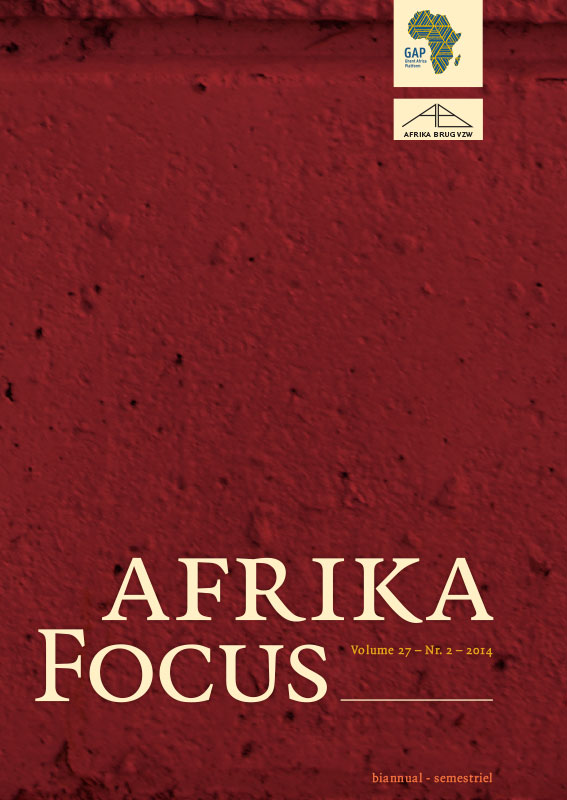Editorial
DOI:
https://doi.org/10.21825/af.v27i2.4883Abstract
In most of the articles presented in this issue of Afrika Focus we see hopeful mes- sages about the African continent. In “Arab Spring in Morocco: Social Media and the 20 February Movement”, Brouwer & Bartels explore the ways in which the offline and online worlds interconnected in order to create new forms of meaning-making during the Arab Spring. Also our second article “Modernisation néolibérale et transformation du pro l des dirigeants des entreprises publiques au Maroc. Cas de la Caisse de Dépôt et de Gestion (CDG): 1959-2009” talks about Morocco, by investigating the extent to which the directors of public enterprises underwent transformations under the heading of neoliberal modernization processes. In his article “Depoliticised Ethnicity in Tanzania: A Structural and Historical Narrative” Malipula gives the history and the rationale behind the fact that Tanzania is not characterized by politicized ethnicity, which tends to lead to cleavages and tension in a lot of other African societies. Finally, Celis et al. “Characteristics of participants in an HIV prevention intervention for youth in Rwanda: results from a longitudinal study” picture a hopeful image of HIV prevention campaigns in Rwanda by describing the ways in which participation in these interventions could be increased, mainly amongst young people.Downloads
Published
How to Cite
Issue
Section
License
Authors who publish with this journal agree to the following terms
Authors retain copyright and grant the journal right of first publication with the work simultaneously licensed under a Creative Commons Attribution License that allows others to share the work with an acknowledgement of the work's authorship and initial publication in this journal.
Authors are able to enter into separate, additional contractual arrangements for the non-exclusive distribution of the journal's published version of the work (e.g., post it to an institutional repository or publish it in a book), with an acknowledgement of its initial publication in this journal.
Authors are permitted and encouraged to post their work online (e.g., in institutional repositories or on their website) prior to and during the submission process, as it can lead to productive exchanges, as well as earlier and greater citation of published work (See The Effect of Open Access).


